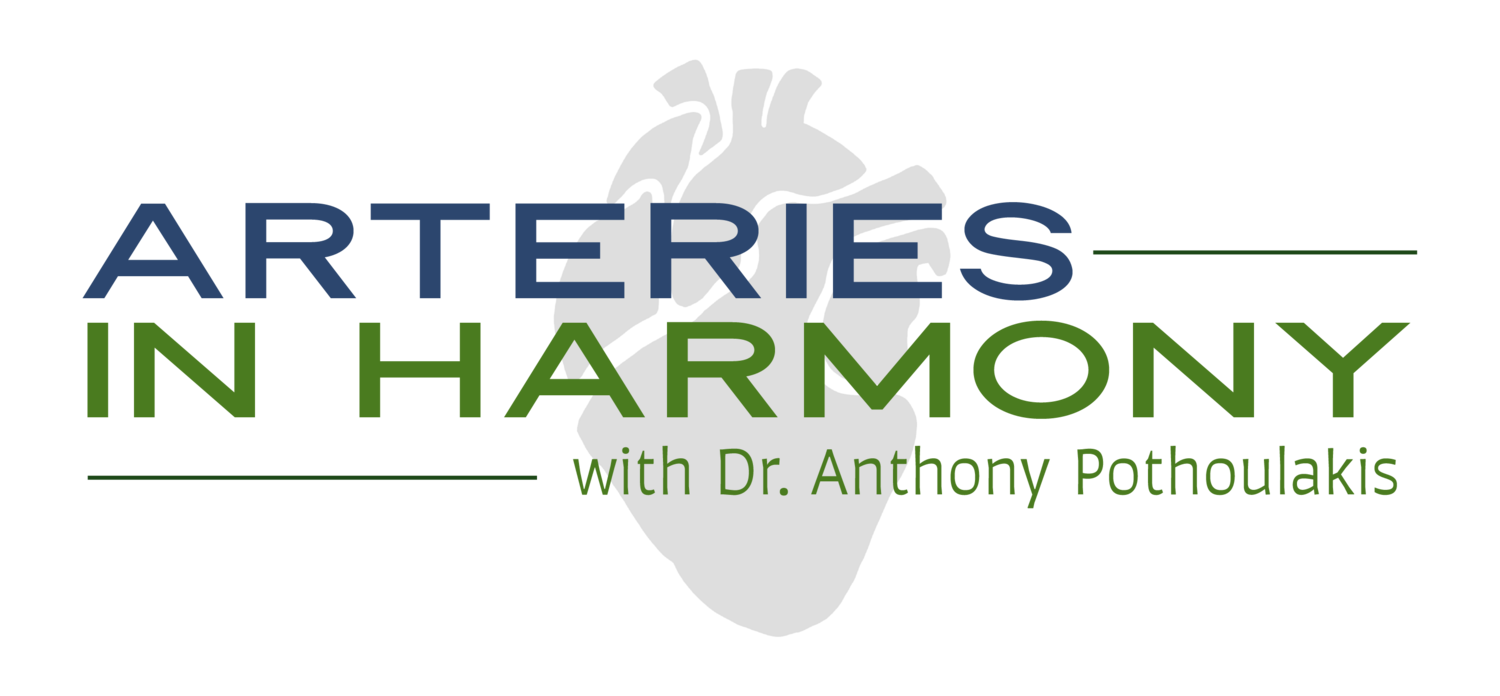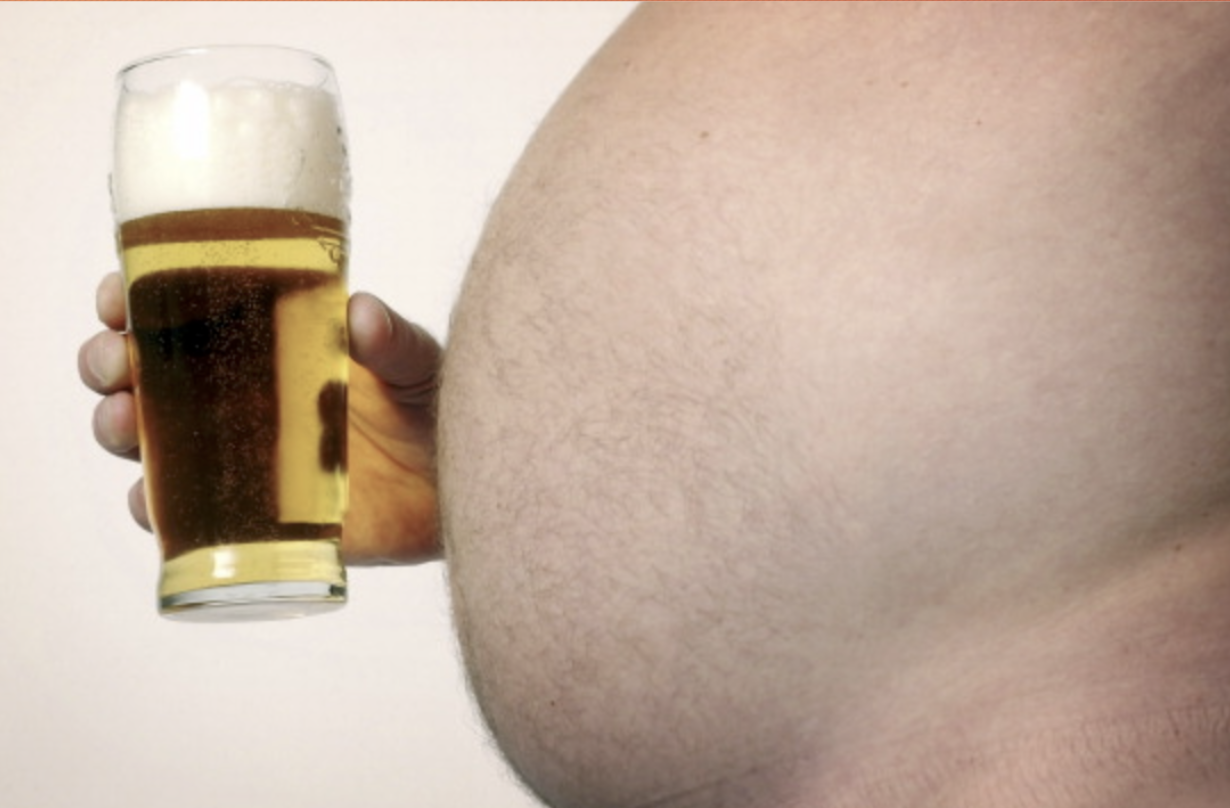The Tip of the Iceberg
Last week I was honored to present on the obesity-diabetes-and artery disease epidemic to a group of Delta employees in Atlanta. The venue was warm and inviting and very well organized. The participants were engaged and asked a large number of insightful questions. After my talk was over, I was invited to one of the working areas and I was happy to see that there were so many standing desks and a lot of opportunities for the employees to be physically active. A great workplace!
I used several PowerPoint slides for my presentation. One of those showed a picture of a gigantic iceberg where both the above-the-surface and below-the-surface parts of the iceberg were visible. The caption read: “Why am I showing you this picture?” After I let the question sink in the minds of the audience for a few seconds, I presented the next slide. There was the picture of a huge belly of a man. The face or the rest of the body were not shown; the focus was on the belly. The caption read: “Because it is so easy to see this…”. The next slide followed in quick succession and its caption picked up where the previous one left: “...but you can’t see that!”
Just like the iceberg that sunk the Titanic, what is hiding below the surface is the most dangerous. Our artery health can’t be seen from the outside, but inside, the story is much different.
You can clearly see the “deeper issue” in this up-close photo of an adult artery.
The “that” was the inside of an artery of a person with a huge belly like the one on the slide. The artery looked ugly, like a war zone. Instead of appearing like a smooth glistening tube, the inside of the artery was uneven, filled with dirty-looking red and yellow growths, like tumors. These tumors were not cancers; they were advanced-stage cholesterol plaques with bleeding and clots on their surface. Such an artery can become the cause of a heart attack, stroke or sudden death without further notice. The slide that followed showed exactly how such a thing can happen. Most of us (especially men) start developing thin fatty lines in the wall of our arteries when we are teenagers. These early fat accumulations are called “fatty streaks” and represent the only form of cholesterol accumulation in our arteries that is reversible. As the cholesterol plaques continue to develop, it usually takes them a minimum of 20 plus years to mature and, usually, cause zero symptoms during that phase. Once mature, they can, all of a sudden and without any further warning, become unstable, and within a minute they can be causing serious symptoms like chest pain, heart attack, stroke or even sudden death.
Unfortunately, in western countries like ours, by the time we are 45 years of age most of us (especially men) do have some cholesterol plaque in the walls of our arteries. As long as these plaques stay stable, they are not a health problem and usually cause no symptoms. Once unstable, the result is catastrophic. So, what do we need to do to keep any plaques stable:
No smoking (not even one or two cigarettes a day)
Keeping our blood pressure and LDL cholesterol low (our health care provider will advise us whether or not we need medications to achieve this)
Staying physically and socially active
Eating a healthy diet with an emphasis on avoiding abdominal obesity by excluding fast carbs
Avoiding alcohol abuse
Sleeping at least 7 hours per night
Avoiding excessive stress
So, take good care of your arteries in order to keep any possible cholesterol plaques at bay and enjoy a long life without heart attacks, strokes or the need for heart surgery or other heart procedures.
To your health,
Dr. Anthony
If YOU know how your body works then…
“Know thyself “
- An ancient Greek aphorism that appeared in the Temple of Apollo in Delphi and was also inscribed-in Latin- over the Oracle’s door in the 1999 film “Matrix”.
- A maxim that has been attributed to ancient philosophers.
- Benjamin Franklin wrote: "There are three things extremely hard: steel, a diamond, and to know one's self."
Understanding our self, our feelings, our emotions, and what motivates our behavior is or should be an important goal in life. But what does it practically mean in the areas of health, wellness and prevention?
Knowing how our body works helps us understand what is important in keeping it healthy. In order to keep our arteries healthy and avoid heart attacks and stroke, for example, we should care about what we put into our mouth (diet), as this stuff is absorbed by our gut and enters the arteries and heart circulation, with potential salutary (fruits and vegetables filled with antioxidants) or destructive effects (frequent intake of red meat, fast food or cold cuts, filled with unhealthy fats). A healthy metabolism supports healthy arteries and its pillars are a combination of healthy diet and near-daily exercise, including both cardio- and muscle building through light weights. As another example, knowing that one of our immediate family members has type 2 diabetes means that our own pancreas cells that produce insulin are probably not very durable, so we better watch it and avoid becoming obese or eating too many cookies and desserts, or else!
Listen to your body -- once you know it well enough, you can pick up on its cues.
As it is true that no one can know our feelings or emotions better than ourselves, we can also be the best barometers of our physical health. Many times we know when something is “out of whack”, without being able to pinpoint to the exact, precise cause or details. Such knowledge or “gut feeling” may prompt us to make changes in our lifestyle or even visit our doctor. Speaking about doctors, there must be the right “chemistry” between us and our health care provider.
There are several ways to advocate for yourself.
Ask question’s - It is ok to arrive at your doctor’s office with a list of questions. The better organized you are they better it will be for you and your health care provider.
Second opinion - It may be appropriate to get a second opinion. That is why when it comes to YOUR health, you are allowed to talk to several medical professionals about the concerns you have.
Be honest - Feel comfortable telling the truth without hiding anything or fearing that will be chastised for doing so. The old saying Honesty is the best Policy certainly applies here.
Not the Right Match - In case we sense that our doctor is not the right match, we should not hesitate to find another provider.
Knowing our body will help us shape and keep our healthiest version of ourselves. Whereas the general principles of a healthy lifestyle may be, more or less, the same for all of us, the details of how to get there are different. This should come as no surprise as no two individuals are the same, not even monozygotic twins. We have recently spoken to a woman who joined a gym and felt pressured to take a yoga class, as her friends raved about it and she, herself read about its benefits. However, after trying it, she found that yoga was not for her. She did not enjoy it; she felt it was something like a chore she had to attend. As she was not getting the most out of it, she tried something else. She found that a toning class using light weights was more her style. What works for one person does not work for all.
We need not worry if we do not look like the supermodels in the magazines or that bodybuilder at the gym. Actually, this may be a good thing. Some supermodels smoke like a chimney, in order to control their appetite and eat less (smoking is worse than obesity) and many bodybuilders use anabolic steroid drugs that seriously undermine their health. Keep in mind that the weight we carry around our hips is not nearly as bad for our metabolism as our belly weight. In pursuit of a healthy diet, some may be able to follow a strict program and count calories, while others find it easier to just eat healthy. Remember that a diet is good only if we keep it in the long run. And that is okay to be different! If everyone was exactly the same - wouldn’t that make for a boring world?
Listen to your body and watch your body. If you see or notice changes, take action. In today’s busy society it is easy to put everyone else first: kids, spouse, job, even your pet! But YOU have to take care of YOU. Also, do not forget to reward yourself from time to time. Embrace your differences, and work to be the healthiest version of YOU that you can be!
Here’s to your Health!!
Dr. Anthony




